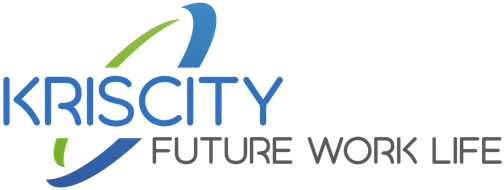Nellore, a city on the eastern coast of Andhra Pradesh, is witnessing significant strides in its urban and economic development.1 Among these initiatives, the establishment of KRIS City stands out as a notable project aimed at fostering innovation and growth.2 This article delves into the concept of KRIS City, its objectives, potential impact, and key features.
KRIS City, often referred to as an innovation city or knowledge hub, represents a strategic effort to create an ecosystem conducive to research, technology development, and economic advancement within the Nellore region. The concept is inspired by successful innovation districts and technology parks globally, which have demonstrated the power of bringing together academia, industry, and government to drive progress.
Objectives of KRIS City
The primary objectives behind the establishment of KRIS City in Nellore are multifaceted:
- Promoting Research and Development: By creating a dedicated space with state-of-the-art infrastructure, KRIS City aims to attract research institutions, universities, and corporate R&D centers. This concentration of intellectual capital can foster collaborative research projects and lead to the development of new technologies and solutions.3
- Fostering Entrepreneurship and Innovation: A key goal is to cultivate a vibrant ecosystem for startups and entrepreneurs. KRIS City intends to provide incubation centers, co-working spaces, and access to funding opportunities, thereby encouraging the creation and growth of innovative businesses.
- Driving Economic Growth and Job Creation: By attracting investment and promoting industrial activity in high-growth sectors, KRIS City is expected to contribute significantly to the local economy.4 The establishment of new businesses and research facilities will lead to the creation of skilled jobs, enhancing the employment prospects for the region’s youth.
- Enhancing the Skills and Knowledge Base: Through collaborations with educational institutions and training centers, KRIS City aims to improve the skills and knowledge base of the local workforce. This focus on human capital development is crucial for sustaining long-term economic growth and ensuring the competitiveness of the region.
- Attracting Investment: A well-planned and effectively managed KRIS City can serve as a magnet for both domestic and foreign investment. The presence of robust infrastructure, a skilled workforce, and a supportive regulatory environment can make Nellore an attractive destination for businesses looking to expand or set up new operations.
Potential Impact
The successful implementation of KRIS City has the potential to bring about transformative changes in Nellore and the surrounding region:
- Technological Advancement: The concentration of research activities can lead to breakthroughs in various fields, driving technological advancement and innovation that can benefit society as a whole.
- Economic Diversification: By promoting sectors beyond traditional industries, KRIS City can help diversify the local economy, making it more resilient to economic fluctuations.
- Improved Quality of Life: The creation of high-skilled jobs and the overall economic development can lead to an improved quality of life for the residents of Nellore.
- Enhanced Global Competitiveness: A thriving innovation ecosystem can enhance the global competitiveness of the region, attracting talent and investment from around the world.5
- Sustainable Development: With a focus on technology and innovation, KRIS City can promote sustainable development practices and contribute to a greener future.6
Key Features and Infrastructure
While specific details about the infrastructure and features of KRIS City may evolve, typical components of such innovation hubs include:
- Research and Development Centers: Dedicated spaces for research institutions and corporate R&D units.
- Incubation and Acceleration Centers: Facilities to support startups and early-stage businesses.
- Commercial Spaces: Offices, conference centers, and exhibition areas.
- Residential Areas: Housing for researchers, professionals, and students.
- Educational Institutions: Collaboration with universities and skill development centers.
- Recreational and Amenity Spaces: Parks, cultural centers, and other facilities to create a vibrant living and working environment.
- Advanced Infrastructure: Reliable power supply, high-speed internet connectivity, and efficient transportation links.
Conclusion
KRIS City represents a significant step towards transforming Nellore into a hub of innovation and economic growth. By fostering a collaborative ecosystem that brings together research, industry, and entrepreneurship, this initiative has the potential to unlock the region’s vast potential and contribute to its overall development and prosperity. The success of KRIS City will depend on strategic planning, effective implementation, and sustained collaboration among all stakeholders.
Citations
- Andhra Pradesh Industrial Infrastructure Corporation (APIIC).
- Department of Industries and Commerce, Government of Andhra Pradesh.
- News articles and reports on development initiatives in Nellore.
- Information on successful innovation cities and technology parks globally.
- AP INDUSTRIAL CORRIDORS INFRASTRUCTURE DEVELOPMENT CORPORATION LIMITED
Disclosure: This article has been written and edited with help from Google Gemini.
